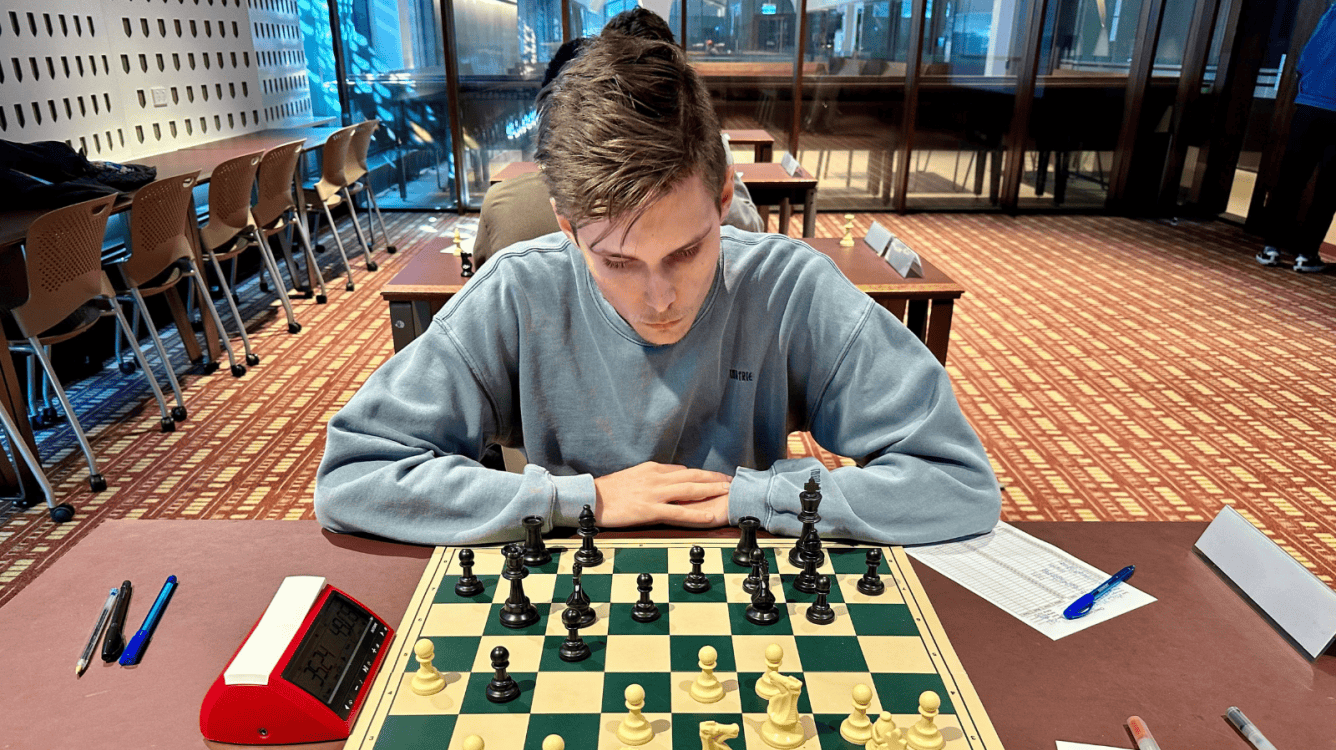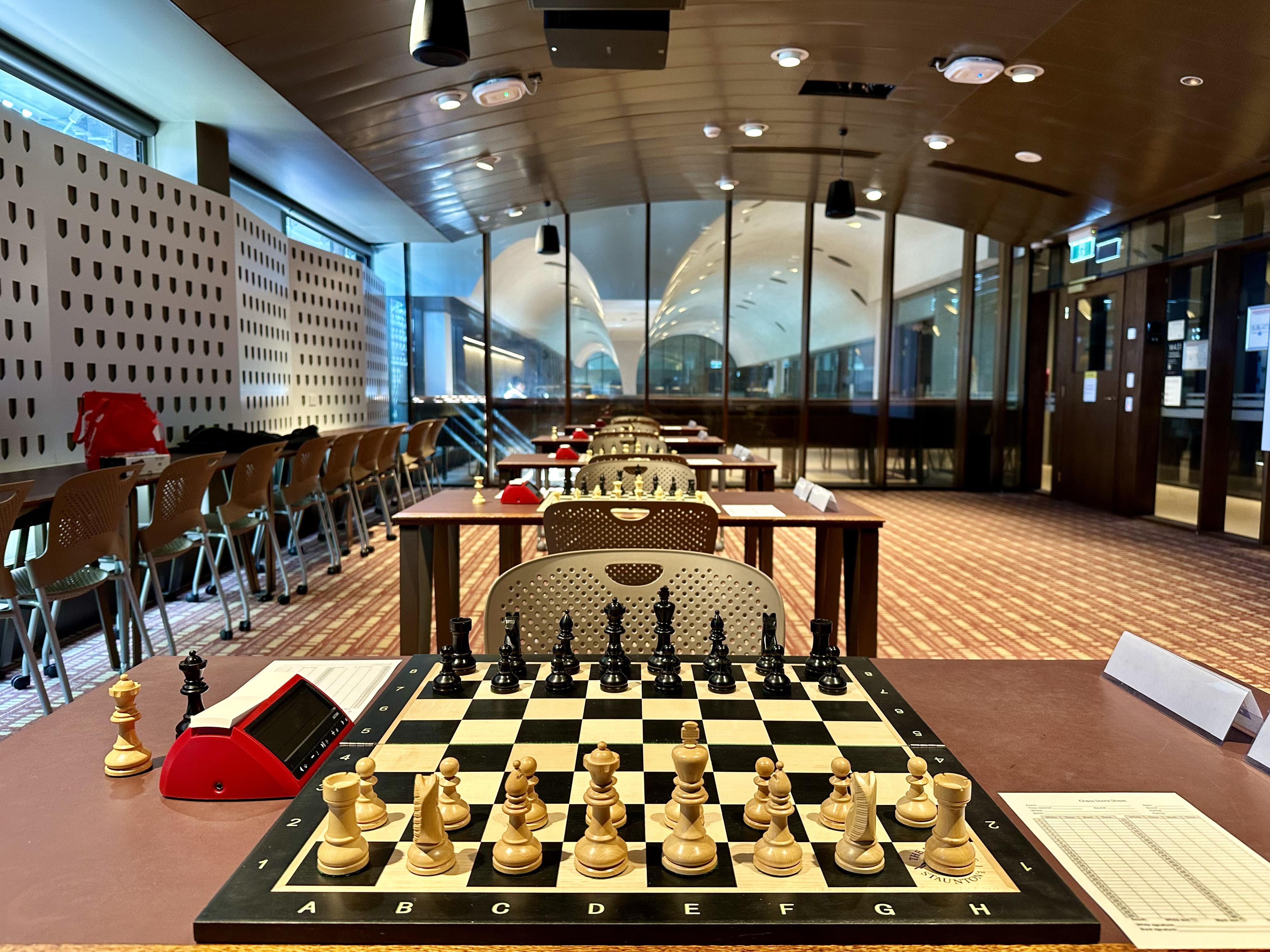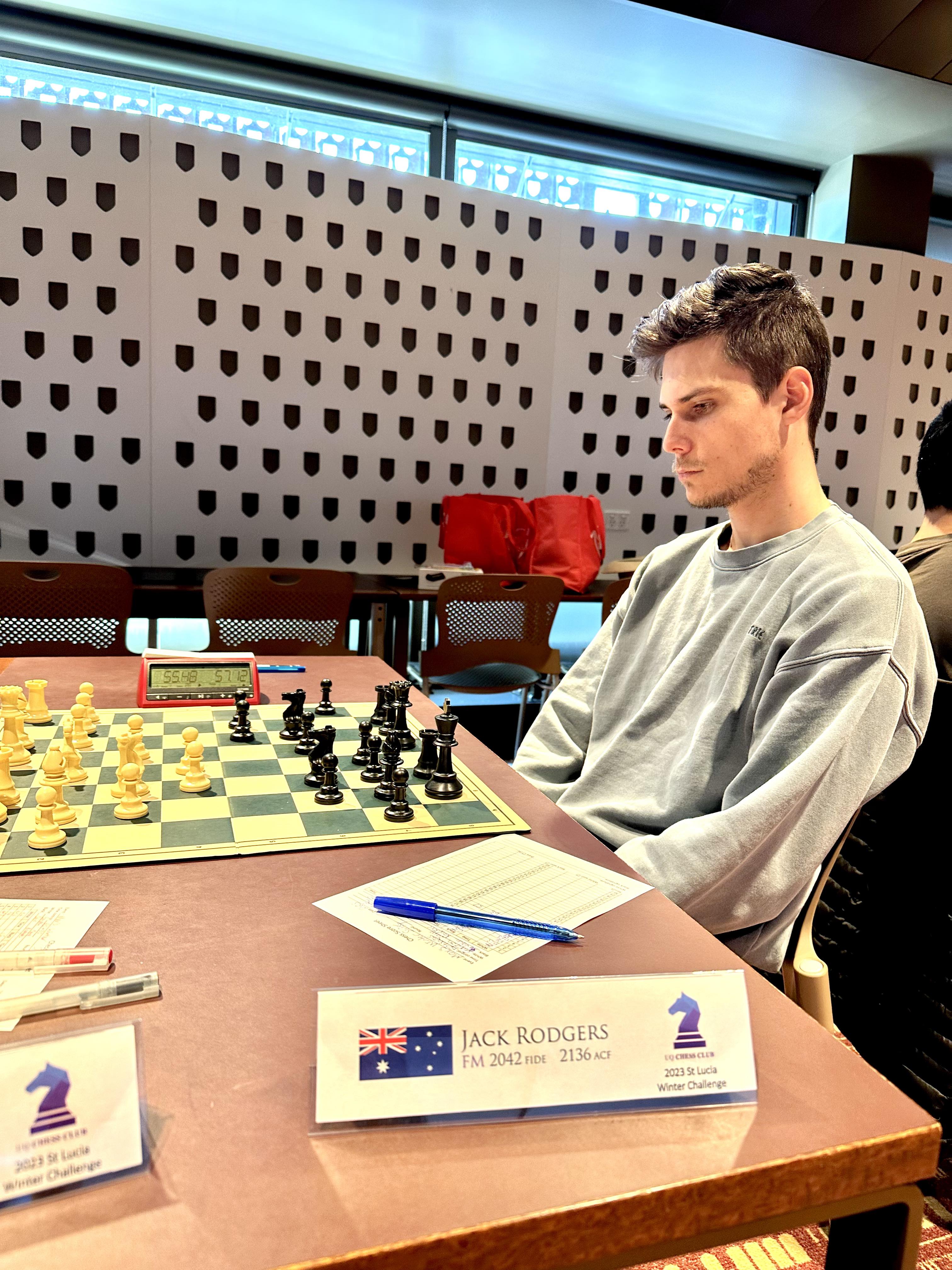
Winning The St. Lucia Chess Challenge With 6/6... And I Owe It All To Endgame Study
Despite having won a number of classical chess tournaments in my career, "picket fence" scores (where a player wins all their games) have escaped me. My unorthodox playing style often leaves me in what I call "coin flip" positions and a tendency toward the superfluous makes perfect scores almost impossible against well-prepared opponents.
Over the weekend I opted to play in the St. Lucia Chess Challenge, a tournament run by the University of Queensland that was only open to players with a FIDE rating higher than 1700. The organizer and President of the chess club, Maximillian Windsor, was hoping to give some of the state's stronger players the opportunity to play in a tournament that improved their chances of gaining rating points.

To put this in perspective, as a 2000+ rated player in a city with few players above 1800, I often play tournaments where 5/6 of my opponents are rated 1700 and below, and generally, the only opponent that doesn't fit this category is a 2400 IM. The risk vs. reward of a tournament like this is bleak for an ambitious chess player... and normally one of the following three scenarios takes place.
1. I defeat 5/5 of my lower-rated opponents, gaining the single rating point on offer per game, and lose to the IM in the field. For my 5/6 score, I will maintain my rating at best but could lose a few.
2. I defeat 4/5 of my lower-rated opponents and draw/lose to one of them. Now, even if I defeat the IM in the field I stand to lose rating points.
3. I defeat 5/5 of the lower-rated opponents and also score a win/draw against the IM. Rating gain but my odds of achieving this are slim!

Cut to the St. Lucia Chess Challenge and although I was the second seed I knew that even a score of 4/6 would likely win me some rating points. In round one, I was paired with an old friend from Sydney, Gordon Yang.

As a former Australian Junior Champion, Gordon is someone I needed to take seriously, and fortunately, he navigated into an opening I am somewhat of an expert in.
In round two the field folded due to several draws and I was surprisingly paired with the top seed, FM Sravan Renjith, the top junior player in Queensland and a player considered almost unbeatable in the famous GPS competition. The game was particularly significant for Sravan as a win would take him over the 2200 FIDE threshold needed to claim his conditional IM title.

Staying true to my style, I was able to take Sravan out of the book early, and upon reaching an opposite-colored bishop endgame that was slightly better for White, Black missed several chances to hold on. The loss was a tilting one for Sravan however he can take solace in knowing that he will surely claim the IM title in no time.
In round three I played the tournament's rock-solid third seed, Kiamehr Baneshi, and dispatched him after winning a pawn out of the opening. Though Baneshi had chances to draw the resulting rook endgame, the accuracy required to do so made it a difficult task. The critical moment came when I decided to swap into what I deemed to be a winning king and pawn endgame... I also had my longest think of the event at 13 minutes for one move!
My round-four opponent often gives me trouble over the board and I have always felt he deserves to be higher rated. Brave as always, Jai Turner played 1...a6 and I played into some obscure theory that had me somewhat puzzled in the middlegame. I optimistically played quickly, thinking I was in a winning position but was shocked to find that Black actually had a slight edge at some point in the game. With fortune once again on my side, Jai blundered away the position and left me on 4/4, 1.5 points ahead of second place.

Round five was yet another Sicilian Defense for me and following a move five blunder by my opponent, I cruised to a fifth straight victory and had the tournament wrapped up with a round to spare. The final round saw me paired against the tournament's lowest-rated player but by no means an easy foe. Zerui Xing was born in 2010 and with a FIDE rating of 1588 posed the possibility of undoing all of my hard work over the weekend.

Sadly for my opponent, I was really starting to feel the form creeping back into my game and this was my best game of the weekend. A middlegame assault on Black's king featuring numerous forcing moves and a brilliant move left Black in checkmate on move 29. If I had to be critical of this game I would say I should have slowed down... when I glanced at the clock after checkmate it still read 57 minutes, meaning I had spent only three minutes of my time plus an increment accrued during the game.
If Max decides to run another similar event next month, I'll do my best to be there! It seems that these tournaments are the only way for an "old" 26-year-old player like me to gain rating points in the state I live in; in this one I gained 29 points for my efforts. At the end of the day though, events like this are a great opportunity for talented juniors to instigate the changing of the guard, and, as a coach, I look forward to the day when us "oldies" are usurped.

The final crosstable. Image: Chesschat.